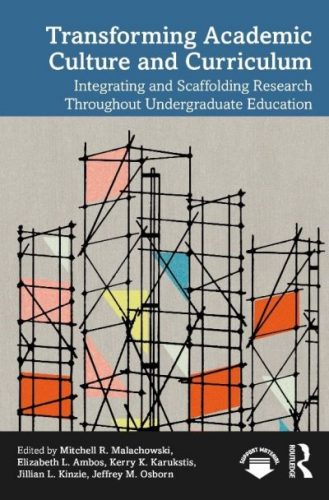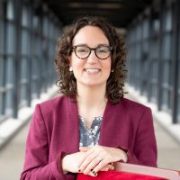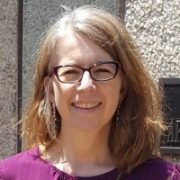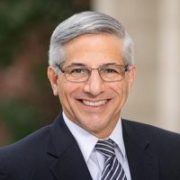Probing Faculty, Student, Disciplinary, and Institutional Influences: CUR Transformations Project 2016-2023 – NSF (16-25354)
High-impact practices, such as undergraduate research, have been championed as approaches to increase student learning and success and to prepare students for the 21st century with skills that employers value and society needs. Through a series of professional development workshops that began in 1996 and via successive grants from the National Science Foundation (NSF-DUE #0618721, DUE #0920275), CUR has prominently worked with faculty members and administrators to institutionalize undergraduate research on campuses of all types across the U.S. Yet, with all the progress that has been made, only a small proportion of students are able to participate in undergraduate research as a result of numerous financial, curricular, and cultural constraints.

The CUR Transformations Project (NSF-DUE #16-25354) addressed the call to redesign the undergraduate curriculum to provide all students with more equitable access to the benefits of undergraduate research. This NSF-funded national model project had the dual goals of assisting departments to actively develop more research-rich curricula while researching the interconnected factors that are conducive to curricular and cultural transformation.
The findings and lessons of this research are synthesized in a theory of change that broadly applies not only to STEM disciplines, but to all academic and institutional types. This project had many of the intended outcomes, culminating in the published edited volume Transforming Academic Culture and Curriculum (2024), which describes and unifies the research-based evidence, theory, and practical approaches from the participating institutions and departments and holistically across the longitudinal study.
“Transforming Academic Culture and Curriculum is a comprehensive guide for any faculty and academic administrators interested in enhancing the college curriculum to be more inquiry based and actively involve students as knowledge creators. By addressing this shift as a culture change, using backward design and change agency skills, engaging disciplinary contexts and rich assessment practices, the contributors help leaders see the needed steps to create sustainable and deep change. Case examples pulled from across their research study make the work tangible in various campus and departmental settings. Importantly, they make the case that building research into undergraduate education is an equity imperative to make such experiences available to all.”
Adrianna Kezar, the Dean’s Professor of Leadership, Wilbur-Kieffer Professor of Higher Education and Director of the Pullias Center for Higher Education at the University of Southern California
Note: CUR Members can save 30% off the price of the book by using code CU30 when purchasing from Routledge.com.
Project Information
Over a six-year period, we worked intensively with 12 diverse institutions and 24 departments (two departments at each institution) in the fields of biology, chemistry, psychology, and physics to scaffold the development of research skills throughout a four-year curriculum using a backward design approach. From the outset, each department was assigned two experienced consultants to provide sustained guidance, communication, and annual site visits throughout the six-year project. Each department included a robust departmental leadership team, and each participating institution established an institutional-level leadership team to facilitate interdisciplinary communication, collaboration, and long-term sustained change. A key goal of the institutional leadership team included leveraging the successes and lessons learned from the two participating departments and scaling these across other departments at the institution (STEM and non-STEM).
- Bradley University, Illinois (Biology Department, Chemistry and Biochemistry Department, Psychology Department)
- Bridgewater State University, Massachusetts (Chemical Sciences Department, Psychology Department)
- Mansfield University, Pennsylvania (Biology Department, Psychology Department)
- Radford University, Virginia (Biology Department, Physics Department)
- Rice University, Texas, (Biosciences Department, Physics and Astronomy Department)
- Smith College, Massachusetts (Biological Sciences Department)
- St. Mary’s College of Maryland (Chemistry and Biochemistry Department, Psychology Department)
- University of Arizona (Chemistry and Biochemistry Department, Molecular and Cellular Biology Department)
- University of California, Riverside (Evolution, Ecology, and Organismal Biology Department, Psychology Department)
- University of North Carolina at Greensboro (Biology Department, Chemistry and Biochemistry Department)
- Westminster University, Pennsylvania (Biology Department, Psychology Department)
- Winston-Salem State University, North Carolina (Biological Sciences Department, Chemistry Department)
For more detailed descriptions of these examples, along with many more from the range of institutions and departments participating in the CUR Transformations project, please see the summative book that resulted from the project: Transforming Academic Culture and Curriculum (2024).
Embracing Collaboration to Generate Wins
The University of North Carolina at Greensboro (UNCG) Chemistry and Biochemistry faculty built momentum for their curricular transformation by using their wetland areas on campus to incorporate the theme of research on natural waters in several laboratory-based courses. The department further strengthened their implementation of inquiry-based courses by coordinating the water quality studies in the introductory-level General Chemistry 2 laboratory and the intermediate-level Instrumental Analysis laboratory. In addition, the UNCG Biology Department, also a CUR Transformations participant, created a multi-week module in the General Biology 2 laboratory to use a microscopic organism as an additional indicator of water quality in the same wetland samples.
The St. Mary’s College of Maryland Chemistry and Biochemistry department intentionally vertically scaffolded a series of biodiesel laboratory experiences to develop both collaboration and written communication research skills. The laboratory exercises span multiple courses (general chemistry, organic chemistry, and physical chemistry) with opportunities for future connections with additional upper-division courses.
Creating Departmental Structures and Positions to Sustain Transformational Change
The Psychology faculty at Bridgewater State University developed course coordinator positions for both required courses (e.g., Introductory Psychology, Research Methods I, etc.) and various course levels (e.g., pillar courses, advanced/capstone courses). A departmental curriculum guide outlined specific course learning outcomes as well as provided access to shared document libraries with example syllabi, activities, and other course resources.
The University of Arizona Chemistry and Biochemistry faculty created new department positions to ensure sustainability of their curricular revisions. The positions established included a full-time Associate Head for Strategic Planning, New Curriculum, and Outreach and their first ever Undergraduate Research Coordinator.
The St. Mary’s College of Maryland Chemistry and Biochemistry department developed guidelines to articulate their shared commitment to teaching excellence and highlighted the importance of curricular improvements and the sharing of pedagogical strategies, activities, and learning details. They also created an assessment tool that both aligns and longitudinally tracks course and program learning outcomes.
Using Assessment Measures to Propel Curricular Transformation Forward
CUR Transformations departments were motivated to integrate scaffolded research and research skill development to address local questions regarding student experiences and the culture of teaching and learning. For example, the Radford University Physics department changed teaching practices in their first-year introductory course in an effort to increase first-year student retention and improve students’ beliefs about physics. With the goal of having students see themselves as physicists and building their confidence, the faculty (1) designed a multi-week lab activity to give students a first opportunity to build research skills and (2) added a series of computational physics activities to show students how they could obtain results for more complex systems. A 20% increase in first-year student retention and significantly improved scores on the Colorado Learning Attitudes about Science Survey (CLASS), a measure of students’ beliefs about physics and how closely these align with experts’ beliefs, were strong indicators that the curricular changes were working.
For more detailed descriptions of these examples, along with many more from the range of institutions and departments participating in the CUR Transformations project, please see the summative book that resulted from the project: Transforming Academic Culture and Curriculum (2024).
Broadening the Success of the CUR Transformations Project beyond STEM Disciplines
Winston-Salem State University (WSSU) was inspired by the participation of their two departments (Biological Sciences; Chemistry) in the CUR Transformations project and these departments’ successes at infusing high-impact undergraduate research experiences throughout their curricula. Eager for students in the humanities to also benefit from enhanced opportunities for undergraduate scholarship and creative endeavors, WSSU sought and was awarded significant funding from the Andrew W. Mellon Foundation for curriculum redesign in the fields of art and visual studies, English, history, and music. WSSU is one of the few public HBCUs to receive a grant in the Mellon Foundation’s 50-year history. These resources will extend the impact of the CUR Transformations initiative by delivering further transformative curricular change throughout WSSU.
Empowering Non-Tenure Track Faculty to Advance Undergraduate Education at Research-Intensive Institutions
The comprehensive revision of a major curriculum requires the involvement of everyone contributing to the learning environment. The two departments at Rice University participating in the CUR Transformations project – BioSciences and Physics and Astronomy – empowered such broad-based action in both curricular reform and delivery, particularly for non-tenure track (NTT) faculty members. By receiving opportunities and resources for professional development to become pedagogical leaders in their discipline, NTT faculty gained greater workload autonomy, new leadership roles, and new promotion pathways. As a consequence of this success, Rice University sought and received National Science Foundation funding (DUE #2121157) to identify how research-intensive institutions can transform their organizational structures, processes, and policies to ensure that NTT faculty contribute to institutional initiatives to enhance undergraduate education and student learning.
Cultivating Synergies with Institutional Goals to Drive Curricular Transformation
Institutional strategic plans, major initiatives, and funding priorities can often have synergistic effects on departmental undertakings. Successful curricular change was realized by several exemplars in the CUR Transformations project by maximizing these synergies.
The Chemistry department at Bridgewater State University acquired momentum, institutional recognition, and access to campus resources by selecting a set of student learning outcomes that blended the goals of the CUR Transformations project with three other efforts: (a) the required career preparation skills of the American Chemical Society approval program, (b) Bridgewater’s university-wide United Nations Sustainable Goals Innovation Grant project, and (c) Bridgewater’s Interdisciplinary Learning and Research Initiative.
The Chemistry and Biochemistry department at St. Mary’s College of Maryland integrated professional skills into their CUR Transformations student learning outcomes to align with the focus on professional identity and career readiness in the college-wide “Learning through Experiential and Applied Discovery” (LEAD) program.
Rice University’s BioSciences department used the facets of inquiry in Rice’s Quality Enhancement Plan (a key component of Rice’s institutional re-accreditation) to scaffold research skills throughout the Biochemistry and Cell Biology major. They received funding and pedagogical support for undergraduate research in the classroom through Rice’s Office of Undergraduate Research and Inquiry. Undergraduate and graduate students were designated as Inquiry-Based Learning Fellows who received professional development training to assist faculty members in transforming their courses to increase inquiry.
To ease faculty workload constraints when designing and implement new curricula, the Physics department at Radford University leveraged financial support from their campus’ Howard Hughes Medical Institute (HHMI) Inclusive Excellence Project to hire a postdoctoral scholar. This individual both participated in the curricular transformation process and served as an instructor to provide faculty time to engage in course development.
The Bridgewater State University Psychology department established faculty learning communities centered around specific course development by sponsoring summer institutes co-funded by the CUR Transformations project and the Bridgewater Center for Transformative Learning. These institutes provided compensated time for faculty at all levels to create, develop, and share syllabi, learning activities, and assessment methods to address the research skills scaffolded within a particular course.
For more detailed descriptions of these examples, along with many more from the range of institutions and departments participating in the CUR Transformations project, please see the summative book that resulted from the project: Transforming Academic Culture and Curriculum (2024).
Ahern-Rindell, A. J. & Ambos, E. L. (2024) How Do We Know We Are Ready for Comprehensive Change? How Do We Frame Our Vision and Goals? In Transforming Academic Culture and Curriculum (pp. 184-192). Routledge. https://doi.org/10.4324/9781003448327-12 Keywords: Multiple Disciplines, Council on Undergraduate Research
Ambos, E. L. (2024) Theory of Change. In Transforming Academic Culture and Curriculum (pp. 146-172). Routledge. https://doi.org/10.4324/9781003448327-8 Keywords: Multiple Disciplines, Council on Undergraduate Research
Ambos, E. L., Karukstis, K. K., Kinzie, J. L., Malachowski, M. R., & Osborn, J. M. (2024). Undergraduate Research as a Key Element of Institutional Transformation. In Transforming Academic Culture and Curriculum (pp. 3-21). Routledge. https://doi.org/10.4324/9781003448327-2 Keywords: Multiple Disciplines, Council on Undergraduate Research
Ambos, E. L., Karukstis, K. K., Kinzie, J. L.,. Malachowski, M. R. & Osborn, J. M. (2024) Advancing Transformative Work. In Transforming Academic Culture and Curriculum (pp. 173-178). Routledge. https://doi.org/10.4324/9781003448327-9 Keywords: Multiple Disciplines, Council on Undergraduate Research
Bailey, A. M., Fernandez, G. M., & Mantell, J. M. (2021). Optimizing resources: Applying quantitative resource analysis to facilitate resource-neutral curricular reform. Scholarship of Teaching and Learning in Psychology. https://doi.org/10.1037/stl0000302 . Keywords: Psychology, St. Mary’s College of Maryland.
Beason-Abmayr, B., Caprette, D. R, & Gopalan, C. (2021). Flipped teaching eased the transition from face-to-face teaching to online instruction during the COVID-19 pandemic, Advances in Physiology Education online 07 May 2021/in print 01 June 2021. https://doi.org/10.1152/advan.00248.2020. Keywords: Biology, Rice University.
Beason-Abmayr, B., Eich, E., & Catanese, Jr., D. J. (2022). Navigating a pathway to success in undergraduate research, in L. A. Corwin, L. K. Charkoudian & J. M. Heemstra (Eds.), Confronting failure: Approaches to building confidence and resilience in undergraduate researchers (pp. 41-69). Council on Undergraduate Research. (Note: access and download for free via the Council on Undergraduate Research website: https://myaccount.cur.org/bookstore.) Keywords: Biology, Rice University.
Bolger, M. S., Osness, J. B., Gouvea, J. S., & Cooper, A. C. (2021). Supporting scientific practice through model-based inquiry: A students’-eye view of grappling with data, uncertainty, and community in a laboratory experience. CBE—Life Sciences Education 20(4): ar59. 22 Oct 2021 https://doi.org/10.1187/cbe.21-05-0128 . Keywords: Biology, University of Arizona.
Bowers, G. M. (2020). Enhancing career readiness by integrating alumni interactions into upper-level chemistry curricula. In K. Y. Neiles, P. S. Mertz, & J. Fair (Eds.), Integrating Professional Skills into Undergraduate Curricula (pp. 179-194). ACS Symposium Series 1365; American Chemical Society. https://pubs.acs.org/doi/10.1021/bk-2020-1365.ch010 Keywords: Chemistry, St. Mary’s College of Maryland.
Bowers, G. M., Larsen, R. K. III, & Neiles, K. Y. (2021). Scholarship-based undergraduate laboratory courses modeled on a graduate school research rotation. Journal of Chemical Education, 98(4), 1152-1162. https://pubs.acs.org/doi/pdf/10.1021/acs.jchemed.1c00009 Keywords: Chemistry, St. Mary’s College of Maryland.
Bowers, G. M., Mertz, P., & Neiles, K. Y. (2022). A systems thinking approach toward meaningful program assessment. ChemRxiv. https://doi.org/10.26434/chemrxiv-2022-wb4mr. Keywords: Chemistry, St. Mary’s College of Maryland.
Bowers, G. M., Mertz, P., Neiles, K. Y., Chase, D. T., Koch, A. S., Larsen, R. K. III, Sherrer, S. M., & Townsend, T. K. (2024). A Programmatic Assessment System that Features Signature Assignments and a Longitudinal Rubric. Research & Practice in Assessment, 19(1), 30-44. https://www.rpajournal.com/a-programmatic-assessment-system-that-features-signature-assignments-and-a-longitudinal-rubric/. Keywords: Chemistry, St. Mary’s College of Maryland.
Buffalari, D., Fernandes, J. J., Chase, L., Lom, B., McMurray, M. S., Morrison, M. E., & Stavnezer, A. J. (2020). Integrating research into the undergraduate curriculum: 1. Early research experiences and training. Journal of Undergraduate Neuroscience Education, 19(1), A52-A62. https://www.funjournal.org/wp-content/uploads/2021/01/june-19-52.pdf?x89760 . Keywords: Psychology, Westminster College.
Buffalari, D. (2022). Structured worksheets: simple active learning strategies to increase transparency and promote communication. Journal of Undergraduate Neuroscience Education, 20(2), A241-A253. (to access go to: https://www.funjournal.org/category/year/2022/) Keywords: Psychology, Westminster College.
Chase, D. T., Neiles, K. Y., & Koch, A. S. (2020). Intentionally scaffolding career skills in an organic chemistry laboratory course. In K. Y. Neiles, P. S. Mertz, & J. Fair (Eds.), Integrating Professional Skills into Undergraduate Curricula (pp. 147-164). ACS Symposium Series 1365; American Chemical Society. https://pubs.acs.org/doi/10.1021/bk-2020-1365.ch008 Keywords: Chemistry, St. Mary’s College of Maryland.
Chase, L., McMurray, M., Stavnezer, A. J., Buffalari, D., Fernandes, J. J., Lom, B., & Morrison, M. E. (2020). Integrating research into the undergraduate curriculum: 3. Research training in the upper-level neuroscience curriculum. Journal of Undergraduate Neuroscience Education, 19(1), A75-A88. https://www.funjournal.org/wp-content/uploads/2021/01/june-19-75.pdf?x89760 Keywords: Psychology, Westminster College.
Cooper, A. C., Southard, K. M., Osness, J. B., & Bolger, M. S. (2022). The instructor’s role in a model-based inquiry laboratory: Characterizing instructor supports and intentions in teaching authentic scientific practices. CBE—Life Sciences Education 21(1): ar9; 4 Feb 2022 https://doi.org/10.1187/cbe.21-07-0177 . Keywords: Biology, University of Arizona.
Cooper, S. T. & Karukstis, K. K. (2024) OK, We Are Ready to Transform! What Steps Do We Take, Why, and When? In Transforming Academic Culture and Curriculum (pp. 193-217). Routledge. https://doi.org/10.4324/9781003448327-13 Keywords: Multiple Disciplines, Council on Undergraduate Research
Friesen, R. & Cimetta, A. (2023). Facilitating departmental and institutional change for expanding undergraduate research experiences: The effectiveness of a microgrant. Journal of College Science Teaching, 52(5), 61-69, https://www.tandfonline.com/doi/epdf/10.1080/19434898.2023.12290249 . Keywords: Multiple Disciplines, University of Arizona.
Friesen, R. S., & Cimetta, A. D. (2024). The influence of relational, political, discursive, and structural dimensions of power on increasing equitable access to undergraduate research experiences. Journal of Research in Science Teaching. https://doi.org/10.1002/tea.21935 . Keywords: Multiple Disciplines, University of Arizona.
Gonzalez, G. M., Osborn, J. M., & Kinzie, J. L. (2024) How Do We Know If We Are Making Progress? In Transforming Academic Culture and Curriculum (pp. 218-238). Routledge. https://doi.org/10.4324/9781003448327-14 Keywords: Multiple Disciplines, Council on Undergraduate Research
Guo, F., Young, J., Deese, N., Pickens-Flynn, T., Sellers, D., Perkins, D., & Yakubu, M. (2021). Promoting diversity, equity, and inclusion in organic chemistry education through undergraduate research experiences at WSSU. Education Sciences, 11(8), 394. https://doi.org/10.3390/educsci11080394 . Keywords: Chemistry, Winston-Salem State University.
Karukstis, K. K. (2024). Transforming curriculum. In: Malachowski, M., Ambos, E. L., Karukstis, K. K., Kinzie, J. L., & Osborn, J. M. (Eds.). Transforming Academic Culture and Curriculum: Integrating and Scaffolding Research Throughout Undergraduate Education. (pp. 45-71). Routledge. https://doi.org/10.4324/9781003448327-4 Keywords: Multiple disciplines, Council on Undergraduate Research
Kinzie, J. L. & Larson, S. J. (2024). Transformation through Research on Student and Faculty Success. In Transforming Academic Culture and Curriculum (pp. 94-120). Routledge. https://doi.org/10.4324/9781003448327-6 Keywords: Multiple Disciplines, Council on Undergraduate Research
Malachowski, M., Osborn, J., Karukstis, K., Kinzie, J., & Ambos, E. L. (2018). Institutionalizing undergraduate research and scaffolding undergraduate research experiences in the STEM curriculum. In B. L Gourley & R. M. Jones (Eds.), Best practices for supporting and expanding undergraduate research in chemistry (pp. 259-269). ACS Symposium Series. https://doi.org/10.1021/bk-2018-1275.ch015 . Keywords: Multiple Disciplines, Council on Undergraduate Research
Malachowski, M., Osborn, J., Karukstis, K. K., Kinzie, J., & Ambos, E. (2020). Scaffolding research into undergraduate STEM curricula and cultures: An emerging model for systemic change. In Beach, A., Henderson, C., Finkelstein, N., Simkins, S., Weaver, G., & White, K., (Eds.), Transforming institutions: Accelerating systemic change in higher education (pp. 59-69). http://openbooks.library.umass.edu/ascnti2020/chapter/malachowski-etal/ Keywords: Multiple Disciplines, Council on Undergraduate Research
Malachowski, M., Ambos, E., Currie, L., Karukstis, K., Kinzie, J., & Osborn, J. (2021). Creating research-rich curricula to enhance student learning. https://www.cur.org/wp-content/uploads/2023/08/Flier_March2021.pdf. Keywords: Multiple Disciplines, Council on Undergraduate Research
Malachowski, M. R., Ambos, E. L., Karukstis, K. K., Kinzie, J. L., & Osborn, J. M. (Eds.). (2024). Transforming Academic Culture and Curriculum: Integrating and Scaffolding Research Throughout Undergraduate Education. Taylor & Francis. https://doi.org/10.4324/9781003448327 Keywords: Multiple Disciplines, Council on Undergraduate Research
Malachowski, M. R., Ambos, E. L., Karukstis, K. K., Kinzie, J. L., & Osborn, J. M. (2024) Introduction to the Purpose and Organization of the Toolkit. In Transforming Academic Culture and Curriculum (pp. 181-183). Routledge. https://doi.org/10.4324/9781003448327-11 Keywords: Multiple Disciplines, Council on Undergraduate Research
Malachowski, M. R. & Morrison, J. A. (2024). Transforming Culture. In Transforming Academic Culture and Curriculum (pp. 22-44). Routledge. https://doi.org/10.4324/9781003448327-3 Keywords: Multiple Disciplines, Council on Undergraduate Research
Mekolichick, J. (2024) Recognizing Undergraduate Research, Scholarship, and Creative Inquiry as a Career-Readiness Tool. Council on Undergraduate Research. https://lnkd.in/eVkt97j7 Keywords: Multiple Disciplines, Council on Undergraduate Research
Mertz, P. S., & Neiles, K. Y. (2020). Scaffolding career skills into the undergraduate curriculum using a backward design approach. In K. Y. Neiles, P. S. Mertz, & J. Fair (Eds.), Integrating Professional Skills into Undergraduate Curricula (pp. 43-55). ACS Symposium Series 1365; American Chemical Society. https://pubs.acs.org/doi/pdf/10.1021/bk-2020-1365.ch004. Keywords: Chemistry, St. Mary’s College of Maryland.
Mertz, P. S., & Neiles, K. Y. (2020). Integrating professional skills into the curriculum: A summary of findings and first steps. In K. Y. Neiles, P. S. Mertz, & J. Fair (Eds.), Integrating Professional Skills into Undergraduate Curricula (pp. 317-324). ACS Symposium Series 1365; American Chemical Society. https://pubs.acs.org/doi/10.1021/bk-2020-1365.ch018 Keywords: Chemistry, St. Mary’s College of Maryland.
Mertz, P., Sherrer, S., & Bowers, G. M. (2023). Teaching and assessing undergraduate collaboration skills scaffolded through the biochemistry curriculum using collaboration rubrics and student learning contracts. Biochemistry and Molecular Biology Education. https://doi.org/10.1002/bmb.21760 . Keywords: Chemistry, St. Mary’s College of Maryland.
Morrison, M. E., Lom, B., Buffalari, D., Chase, L., Fernandes, J. J., McMurray, M. S., & Stavnezer, A. J. (2020). Integrating Research into the undergraduate curriculum: 2. Scaffolding research skills and transitioning toward independent research. Journal of Undergraduate Neuroscience Education, 19(1), A63-A73. https://www.funjournal.org/wp-content/uploads/2021/01/june-19-64.pdf?x89760. Keywords: Psychology, Westminster College.
Neiles, K. Y., Bowers, G. M., Chase, D. T., VerMeulen, A., Hovland, D. E., Bresslour-Rashap, E., Eller, E., & Koch, A. S. (2019) Teaching collaborations and scientific practices through a vertically scaffolded biodiesel laboratory experience, Journal of Chemical Education, 96(9), 1988-1997 (Laboratory Experiment). https://doi.org/10.1021/acs.jchemed.9b00008 Keywords: Chemistry, St. Mary’s College of Maryland.
Neiles, K. Y., Mertz, P. S., & Fair, J. D. (2020). Integrating professional skills into undergraduate chemistry curricula. ACS Symposium Series 1365; American Chemical Society. https://pubs.acs.org/doi/10.1021/bk-2020-1365 . Keywords: Chemistry, St. Mary’s College of Maryland.
Neiles, K.Y., & Mertz, P. S. (2020). Professional skills in chemistry and biochemistry curricula: A call to action. In K. Y. Neiles, P. S. Mertz, & J. Fair (Eds.), Integrating Professional Skills into Undergraduate Curricula (pp. 3-15). ACS Symposium Series 1365; American Chemical Society. https://pubs.acs.org/doi/10.1021/bk-2020-1365.ch001 Keywords: Chemistry, St. Mary’s College of Maryland.
Neiles, K.Y., & Bowers, R.A. (2020). A general chemistry co-curriculum focused on the development of professional and academic skills. In K. Y. Neiles, P. S. Mertz, & J. Fair (Eds.), Integrating Professional Skills into Undergraduate Curricula (pp. 105-146). ACS Symposium Series 1365; American Chemical Society. https://pubs.acs.org/doi/pdf/10.1021/bk-2020-1365.ch007 Keywords: Chemistry, St. Mary’s College of Maryland.
Neiles, K.Y., & Arnett, K. (2021). Backward design of chemistry laboratories: A primer. Journal of Chemical Education, 98(9), 2829-2839. https://doi.org/10.1021/acs.jchemed.1c00443. Keywords: Chemistry, St. Mary’s College of Maryland.
Osborn, J. M., E. L. Ambos, K. K. Karukstis, J. L. Kinzie, and M. R. Malachowski. (2024). Overview of the Council on Undergraduate Research Transformations project. In: Malachowski, M., E. Ambos, K. Karukstis, J. Kinzie, and J. Osborn (Eds). Transforming Academic Culture and Curriculum. Integrating and Scaffolding Research Throughout Undergraduate Education (pp. 239–246). Routledge. Keywords: Multiple disciplines, Council on Undergraduate Research.
Osborn, J. M., J. L. Kinzie, K. K. Karukstis, M. R. Malachowski, and E. L. Ambos. 2024. Fostering equitable transformation: Leading structural and cultural change for curricular scaffolding. Change. (In press). Keywords: Multiple disciplines, Council on Undergraduate Research
Osborn, J. M., Barthell, J. F., Eich, E., Richards, R. A., & Rowlett, R. S. (2024). Transformation through institutional agency. In Malachowski, M., Ambos, E. L., Karukstis, K. K., Kinzie, J. L., & Osborn, J. M. (Eds.). Transforming Academic Culture and Curriculum: Integrating and Scaffolding Research Throughout Undergraduate Education. Routledge. (pp. 121-145). https://doi.org/10.4324/9781003448327-7 Keywords: Multiple disciplines, Council on Undergraduate Research
Pavlova, I. V., Remington, D. L., Horton, M., Tomlin, E., Hens, M. D., Chen, D., Wilse, J., & Schug, M. D. (2021). An introductory biology research-rich laboratory course shows improvements in students’ research skills, confidence, and attitudes. PloS one, 16(12), e0261278. https://journals.plos.org/plosone/article?id=10.1371/journal.pone.0261278 . Keywords: Biology, University of North Carolina at Greensboro.
Petritis, S., Kelley, C., & Talanquer, V. (2021). Exploring the impact of the framing of a laboratory experiment on the nature of student argumentation. Chemistry Education Research and Practice, 22, 105-121. https://doi.org/10.1039/D0RP00268B Keywords: Chemistry, University of Arizona.
Sherrer, S. M. (2020). Using scientific poster presentations to scaffold professional communication skill experiences into biochemistry courses. In K. Y. Neiles, P. S. Mertz, & J. Fair (Eds.), Integrating Professional Skills into Undergraduate Curricula (pp. 165-178). ACS Symposium Series 1365; American Chemical Society. https://pubs.acs.org/doi/10.1021/bk-2020-1365.ch009 . Keywords: Chemistry, St. Mary’s College of Maryland.
Soltau, S.R. (2020). Student and instructor perceptions of using electronic laboratory notebooks in Microsoft OneDrive to enhance communication skills and career readiness in chemistry laboratory courses. Integrating Professional Skills into Undergraduate Curricula. Neiles, K.Y; Mertz, P. S; Fair, J., Eds. ACS Symposium Series 1365; American Chemical Society, pp. 260-279. https://pubs.acs.org/doi/pdf/10.1021/bk-2020-1365.ch015. Keywords: Chemistry, Bridgewater State University (MA).
Stevens, E., & Buffalari, D. (2021). Building information literacy through consideration of claims in psychology: Evaluating credibility and evidence in sources. Library and Information Technology Publications. 10. https://digitalcommons.bucknell.edu/lit_pubs/10 . Keywords: Psychology, Westminster College.
Vandermaas-Peeler, M., Byrd, S. K., Reiness, C. G., Frederick, K. A., Holmes, B. E., Bates, S. C., Cunningham, B. A., Jackson, M., Quenemoen, C. K., & Wooley, C. A. (2024). Transformation through a Disciplinary Lens. In Transforming Academic Culture and Curriculum (pp. 72-93). Routledge. https://doi.org/10.4324/9781003448327-5 Keywords: Multiple Disciplines, Council on Undergraduate Research
Young, A. L., Bloodworth, K. J., Frost, M. D., Green, C. E., & Koerner, S. E. (2022). Heatwave implications for the future of longleaf pine savanna understory restoration. Plant Ecology, 223(3), 339-351. https://doi.org/10.1007/s11258-021-01212-7 . Keywords: Biology, University of North Carolina at Greensboro.
- Ami Ahern-Rindell, University of Portland, Oregon
- John Barthell, University of Central Oklahoma
- Scott Bates, Utah State University
- Mark Bussell, Western Washington University
- Sherell Byrd, Fort Lewis College, Colorado
- Lee Coates, Allegheny College, Pennsylvania
- Scott Cooper, University of Wisconsin-La Crosse
- Beth Cunningham, American Association of Physics Teachers, Maryland
- Paula Dehn, Kentucky Wesleyan College
- Elizabeth Eich, Rice University, Texas
- Kimberley Frederick, Skidmore College, New York
- Gerardo Gonzalez, California State University-San Marcos
- Bridget Gourley, DePauw University, Indiana
- Andrea Halpern, Bucknell University, Pennsylvania
- Bert Holmes, University of North Carolina-Asheville
- Michael Jackson, New Mexico Institute of Mining and Technology
- Patrick Killion, University of Maryland
- Susan Larson, Concordia College, Minnesota
- Janet Morrison, The College of New Jersey
- Gary Reiness, Lewis & Clark College, Oregon
- Rosalie Richards, Stetson University, Florida
- Roger Rowlett, Colgate University, New York
- David Strohmetz, University of West Florida
- Maureen Vandermaas-Peeler, Elon University, North Carolina
“Transforming Academic Culture and Curriculum is a comprehensive guide for any faculty and academic administrators interested in enhancing the college curriculum to be more inquiry based and actively involve students as knowledge creators. By addressing this shift as a culture change, using backward design and change agency skills, engaging disciplinary contexts and rich assessment practices, the contributors help leaders see the needed steps to create sustainable and deep change. Case examples pulled from across their research study make the work tangible in various campus and departmental settings. Importantly, they make the case that building research into undergraduate education is an equity imperative to make such experiences available to all.”
Adrianna Kezar, Director of the Pullias Center and Professor at the University of Southern California
“Undergraduate research allows students to develop skills necessary to address the challenges of the 21st century. Rather than reserve this opportunity for a select few, the Council on Undergraduate Research Transformations project rightly urges universities to scaffold research into curricula in order to provide access to this high-impact educational practice at scale. By transforming approaches to faculty development and collaboration, Rice University’s participating departments created curricula that exemplify our dual commitments to research and teaching.”
Reginald DesRoches, Rice University President, Professor of Civil & Environmental Engineering, and Professor of Mechanical Engineering
“I am deeply impressed. This is a most welcome and indispensable book. First, it seeks to make the undergraduate research experience accessible to all students. Or, as the book puts it: “scaffolding is equity.” If undergraduate research opportunities remain optional and highly selective, the very students who could benefit most will continue to be excluded. Second, the editors have succeeded in combining insightful case studies with extensive knowledge about change management on the one hand, and a highly practical and proven toolkit on the other. This book is a treasure for universities, faculty members, consultants, and anyone endeavoring to make higher education fit for the future.”
Harald A. Mieg, (Honorary) Professor of Metropolitan Studies and Innovation at Humboldt-Universität zu Berlin
“This book offers one of the most comprehensive accounts of what it means to reform STEM higher education. Drawing upon the wisdom of the Council on Undergraduate Research (CUR) community, the editors foreground the importance of undergraduate research and provide the reader with a brilliant, rich picture of institutional change. Academic faculty, staff, and administrators from all disciplines, not just STEM, will find this book tremendously useful. I certainly have.”
Kelly Mack, Vice President for Undergraduate STEM Education and Executive Director of Project Kaleidoscope of the American Association of Colleges & Universities
“This book is an incredible read, examining a project that had a profound impact at the University of Arizona and helped in creating sustainable curricular and cultural change. This is outstanding work, and I am so proud to see undergraduate research being highlighted in this way. Our students are here not just for classes but to gain hands-on experience in their fields, and they have real-world impact with their research. This book is something everyone who works in academia should read.”
Robert C. Robbins, President of the University of Arizona
“This timely work vividly highlights meaningful changes within undergraduate research-focused curricula and describes the varying focuses, processes, and outcomes of the Council on Undergraduate Research Transformations project. Readers will discover essential ‘how to’ strategies, developed and implemented with transformative results by programs in chemistry/biochemistry and psychology at St. Mary’s College of Maryland and other institutions that can be used at their institutions with equal success.”
Tuajuanda C. Jordan, President of St. Mary’s College of Maryland
“Centering research experiences in undergraduate education can powerfully engage both students and faculty. Transforming Academic Culture and Curriculum documents outcomes of the Council on Undergraduate Research Transformations project and provides an invaluable toolkit to help departments and institutions implement authentic research experiences for undergraduates. A valuable resource for anyone seeking to accelerate the development of a research-centered undergraduate curriculum.”
Emily R. Miller, Deputy Vice President for Institutional Policy of the Association of American Universities
“A Workshop Initiative by the Council on Undergraduate Research (CUR) to Establish, Enhance, and Institutionalize Undergraduate Research.” (Collaborative award; PIs: Nancy Hensel, Kerry Karukstis, Jeffrey Osborn, Mitch Malachowski, Jill Singer). NSF-DUE-CCLI II #0618721, 1/1/07-12/31/11.
This project assisted institutions without a tradition or culture of campus-wide engagement in undergraduate research to implement it as an effective pedagogical tool and enhance the research culture on their campuses. CUR offered a series of eight regional workshops covering the major geographical regions of the United States to encourage and support regional faculty networking and sharing of ideas. Each workshop served eight institutions (64 institutions total), with each institution sending a team composed of three faculty members and one administrator (256 participants total). Teams worked closely with a trained facilitator to generate an action plan to guide their campus activities. Site visits to each of the 64 campuses approximately one year after the initial workshop further assisted in the implementation and sustainability of the action plan.
Participating institutions included community colleges, liberal arts colleges, comprehensive universities, research universities, several HSIs, and womens’ colleges. During the follow-up site visits, we worked with 50-100 faculty members and administrators on each campus to develop communities of scholars to further enhance institutional change. The project’s broadest impact was ensuring the sustainable implementation of undergraduate research at the participating institutions and building regional undergraduate research communities. We leveraged our efforts by offering four additional workshops: to two state systems serving diverse student populations – California (including several HSIs) and Oklahoma (an EPSCoR state), as well as a group of Historically Black Colleges and Universities (HBCUs) and a group of seven Canadian colleges. Additionally, 31 faculty were trained to serve as workshop facilitators and effectively guide institutional teams in the development and implementation of their action plans.
Publications:
- M. R. Malachowski, “Regional Workshops to be Offered by CUR,” CUR Quarterly, 28, 35 (2007);
- M. R. Malachowski, “Update on CUR’s NSF Funded Regional Workshop,” CUR Quarterly, 29, 1 (2008);
- M. R. Malachowski, M. Webster, “Transforming our Institutions into Research-Rich Environments,” CUR Quarterly, 29, 43-47 (2008);
- J. M. Osborn, K. K. Karukstis, “The benefits of undergraduate research, scholarship, and creative activity”. In M. Boyd, J. Wesemann (Eds.), Broadening Participation in Undergraduate Research: Fostering Excellence and Enhancing the Impact, pp. 41-53. CUR. (2009);
- N. Abraham, B. A. Cunningham, S. Decatur, P. Dehn, M. Lee, J. M. Osborn. “Supporting potentially transformative research from the administrator’s perspective.” In K. K. Karukstis, N. Hensel (Eds.), Transformative Research at Predominately Undergraduate Institutions, pp. 71-88. CUR. (2010);
- N. Hensel (Ed.), Characteristics of Excellence in Undergraduate Research. CUR. (2012).
“Transformational Learning Through Undergraduate Research: Comprehensive Support for Faculty, Institutions, State Systems and Consortia” (Collaborative award; PIs: Elizabeth Ambos, (transitioned from original PI, Nancy Hensel), Mitch Malachowski, Jeffrey Osborn, Kerry Karukstis). NSF-DUE-CCLI III #0920275, 1/1/10-12/31/14.
This award addressed the critical national need to scale up faculty-student collaborative undergraduate research. The project focused on state systems and public and private consortia and their member institutions as a way to leverage the power of the systems/consortia to advance undergraduate research, and thus more comprehensively and efficiently expand this transformational engaged-learning practice. Twenty-four systems/consortia applied to participate, from which we had funding to select six: the Council on Public Liberal Arts Colleges (COPLAC), the University of Wisconsin State System (UW), the California State University System (CSU), the City University of New York (CUNY) system, the Great Lakes Colleges Association (GLCA), and the Pennsylvania State System of Higher Education (PASSHE). Each workshop curriculum was tailored to the needs of the individual system/consortium. Participants ranged from 9 to 23 institutional teams. Plenary and breakout sessions addressed such topics as faculty hiring; tenure/promotion and workload issues; curriculum case studies; funding; assessment; supporting nontraditional students in undergraduate research; undergraduate research as a high-impact practice; connecting service learning, community-based learning and international education with undergraduate research; establishing ties to research-intensive and doctoral-granting institutions; promoting undergraduate research in all disciplines; and communicating with external constituents. A key follow-up brought together the participants of each system/consortium for a second workshop one year after the original one. Each campus team shared its successes and challenges and, with the assistance of the system/consortium leaders, developed strategies for addressing challenges. In addition, a March 2014 summit meeting with representatives from all institutions in the six systems/consortia was held in Washington, D.C.
The success of the CCLI III project’s investment, both to use the organizational structure of systems and consortia to advance undergraduate research and to more deeply understand the strengths and weaknesses of scaling up undergraduate research through systems and consortia, is documented in an edited scholarly volume published by Jossey-Bass in 2015. Titled “Enhancing and Expanding Undergraduate Research: A Systems Approach,” the publication views achievement primarily through the lens of “systemness.” It’s clear that all six systems used the power of the system/consortium to advance undergraduate research, communicate successes (particularly to trustees and senior administrators), and leverage both internal and external resources. Several systems also made progress on two other essential planning fronts: integrating research into the curriculum, and assessing the value and impact of undergraduate research.
Fostering system-/consortium-wide change was the main goal of the project, so we also evaluated the change process through the lens of system-wide impacts. Our research found common challenges for system/consortium-level leaders. To ascertain the ways that change progresses in system contexts, we received a WIDER supplement in late 2012 to engage researchers from Wabash College’s Center for Inquiry and the National Association of System Heads (NASH). This team conducted a series of culture audits of each system/consortium, studying the project’s records, and examining the different organizational, policy, and demographic patterns for each system/consortium. Our objective was to determine the salient reasons for why the systematic institutionalization of undergraduate research is occurring more rapidly in some environments and not in others. Several factors conducive to transformational change were identified including:
- Having a communication strategy that keeps undergraduate research efforts in front of member institution presidents, chief academic officers, and Boards of Trustees.
- Linking the expansion of undergraduate research to national/state/consortia student success initiatives, as well as to the long-term educational impact and financial health of the system/consortium.
- Identifying strong campus leaders to maintain interactions among undergraduate research advocates from the different system/consortium institutions to keep the momentum going.
- Making system-/consortium-wide investments in centralized activities that support undergraduate research such as system-wide student research competitions and/or showcase events and the development of new metrics for tracking undergraduate research and student success, both pre- and post-baccalaureate.
Publications:
- M. Malachowski, J. M. Osborn, K. K. Karukstis, E. L. Ambos (Eds.). Enhancing and Expanding Undergraduate Research: A Systems Approach. New Directions for Higher Education (NDHE), Jossey-Bass, San Francisco, CA, 106 pages. (2015);
- M. Malachowski, J. M. Osborn, K. K. Karukstis, E. L. Ambos. “Realizing Student, Faculty, and Institutional Outcomes at Scale: Institutionalizing Undergraduate Research, Scholarship, and Creative Activity within Systems and Consortia.” In: Malachowski, M., J. M. Osborn, K. K. Karukstis, E. L. Ambos (Eds.), Enhancing and Expanding Undergraduate Research: A Systems Approach. pages 3-13, NDHE, Jossey-Bass, San Francisco, CA. (2015);
- M. Malachowski, J. M. Osborn, K. K. Karukstis, E. L. Ambos, S. L. Kinkaid, D. Weiler. “Fostering Undergraduate Research Change at the System and Consortium Level: Perspectives from the Council on Undergraduate Research.” In: Enhancing and Expanding Undergraduate Research: A Systems Approach, (Eds.) Malachowski, M., J. M. Osborn, K. K. Karukstis, E. L. Ambos. pages 95-106, NDHE, Jossey-Bass, San Francisco, CA. (2015);
- M. Malachowski, N. Hensel, E. Ambos, K. Karukstis, J. Osborn, “The Evolution of CUR Institutes: From Serving Individuals to Serving Campuses, Systems, and Consortia,” CUR Quarterly, 35, 34-35 (2014);
- M. R. Malachowski, “Connecting Undergraduate Research to an Institution’s Core Mission.” In: How to Get Started in STEM Research with Undergraduates, (Ed.) M. Schuh. CUR, (2013);
- M. R. Malachowski, “Living in Parallel Universes: The Great Faculty Divide between Product-Oriented and Process-Oriented Scholarship.” In: Faculty Support and Undergraduate Research: Innovations in Faculty Role Definition, Workload, and Reward, (Eds.) N. Hensel, E. Paul. CUR, (2012);
- M. R. Malachowski, T. Dwyer, “Requiring Research for all Students in a Major: Opportunities and Challenges?” CUR Quarterly, 32: 23-28, (2011).
Meet the Principal Investigators

Mitch Malachowski
Lead Principal Investigator
University of San Diego

Elizabeth Ambos
Ambos Consulting

Lindsay Currie
Council on Undergraduate Research

Kerry K. Karukstis
Harvey Mudd College

Jillian Kinzie
Indiana University

Jeffrey Osborn
The College of New Jersey
For additional questions on this project, please reach out to CUR@CUR.org.


